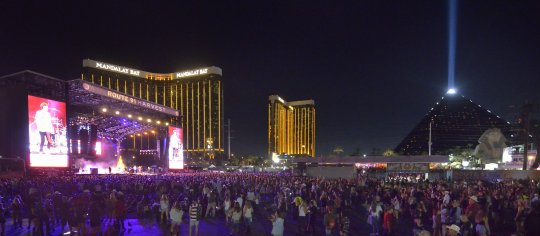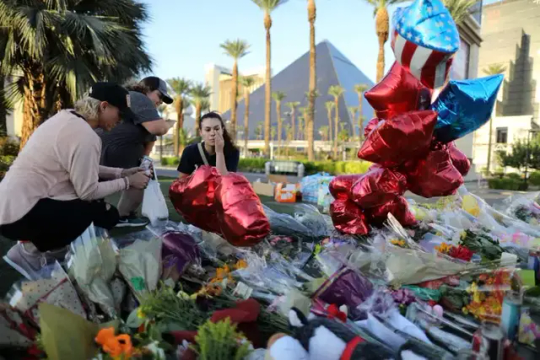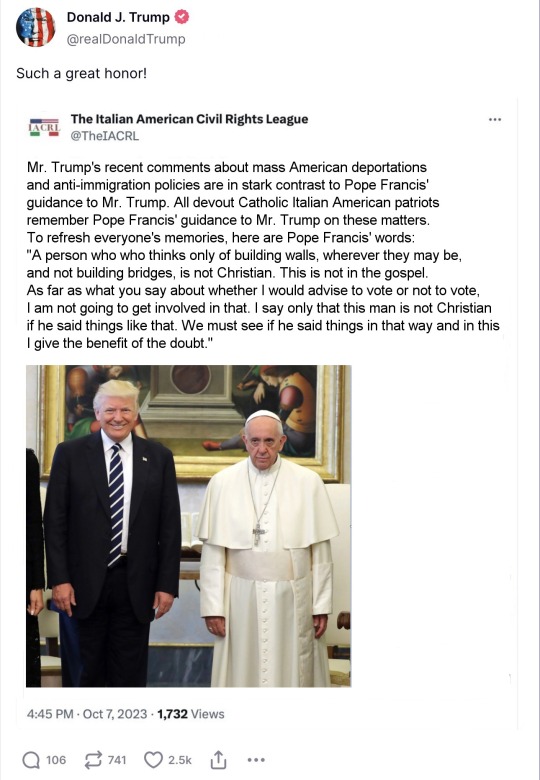#nebuchadnezzar civilization
Text
Kill them with kindness? Wrong! Tomato loss!!! 🍅🍅🍅🍅🍅🍅🍅🍅🍅🍅🍅🍅🍅🍅🍅🍅🍅🍅🍅🍅🍅🍅🍅🍅🍅🍅🍅🍅🍅🍅🍅🍅🍅🍅🍅🍅🍅🍅🍅🍅🍅🍅🍅🍅🍅🍅🍅🍅🍅🍅🍅🍅🍅🍅🍅🍅🍅🍅🍅🍅🍅🍅🍅🍅🍅🍅🍅🍅🍅🍅🍅🍅🍅🍅🍅🍅🍅🍅🍅🍅🍅🍅🍅🍅🍅🍅🍅🍅🍅🍅🍅🍅🍅🍅🍅🍅
#Lemon demon#neil Cicierega#neil cisgender#nebuchadnezzar civilization#hi this is Neil Cicierega aka lemon demon#I’m on my side account because I got locked out of my main account#Could you give me your credit card information so I could buy a new microphone and continue to make music?#OH MY GOD NEIL CICIEREGA 😻😻😻😻
273 notes
·
View notes
Text
Neo-Babylonian king Nebuchadnezzar II remains known as the leader of one of the most powerful ancient empires to have preceded that of the Athenians in Greek's Classical period. However, aside from his military prowess, Nebuchadnezzar showed his leadership in other, more lasting ways. Through a rigorous and intense construction endeavor that lasted from before Nebuchadnezzar's reign to its end in 562 BC, Babylonia was transformed into the height of a powerful ancient civilization. Not only were temples restored to their former glory, but Nebuchadnezzar began two of the most prominent projects of ancient Mesopotamia: the Ishtar Gate and the Hanging Gardens of Babylon. - See more at: http://www.ancient-origins.net/history-famous-people/magnificent-constructions-king-nebuchadnezzar-ii-003609#sthash.tL1PPQZw.dpuf
19 notes
·
View notes
Note
Part 1 of my thoughts:
In the first sentence alone I can tell you have a large knowledge of words, the use of “agitated” “pulsating” and “incessantly” reminds me of when I use to have to look up words to try and replace smaller more common words. The language you use in all of your writings (and I have read MANY of them) always makes yours stories so captivating. The story of king Nebuchadnezzar II and his wife is so cute! Him having an entire building made because she was homesick and he wanted to make her happy is so sweet! They’re really setting the standards high. I love how detailed you got when describing the hanging gardens too, I actually don’t know much about the hanging gardens and it was very interesting to learn a bit about the water system. The introduction of Darius made me know something crazy was going to happen. The relationship between Darius and Bessus is so entertaining. Darius calling Bessus detestable and Bessus clearly getting amusement from Darius’s stress really shows that they’re family, it just gives such sibling vibes in a way. Our introduction to Darius! I love getting praise from people who haven’t even met us❤️. Darius being so hesitant to kidnap us makes me think that he’s probably gonna have a somewhat civil maybe even nice relationship with us. Maybe he’ll kind of take us under his wing since we’re pregnant and a useful hostage. Also Darius telling Bessus not to hurt us was so hpwnwid and you adding “lethal” in there as a way to really make him sound serious was BRILLIANT! Darius calling his servant(I think it was a servant but it could have been a soldier or someone else sorry) to use him to calm down is so fun because we know Roman’s were not straight, especially when men had to go off for war. I really like how sympathetic you made us seem for the women but also not in a way that was stupid. We feel bad and wish it didn’t have to be like this but we also know what it’s the Roman age and certain things are inevitable BUT we also are willing to use the power that we have over Alexander (even if it isn’t much right now and if we aren’t even very aware of it) to help fellow women. You really make us seem like a relatable and genuinely good hearted person, we aren’t too good to where it’s unrealistic but also not bad to where we are a villain(tbh I haven’t seen anything so far that suggest we are or will be a bad person. Unless you count our whole situation with Perdicass I guess but to me that was just more unfortunate and sad) I LOVE the part where Sisygambis mistakes Hephaestion as the king and Hephaestion is just like 😳. I’m glad Alexander didn’t get upset, shows he has some humor and patience. I wonder what he meant when he said Hephaestion was also Alexander? Again I love the way we are introduced. This is our first time reading our girl being presented as queen and clearly Alexander isn’t shy about us which I love. I wonder if we told the women it wasn’t necessary to bow because we still feel like how we did in the other world? Maybe not physically and even a little mentally but mostly we still feel like a regular person and haven’t completely processed the fact that we have status now. I enjoyed her saying that though It really reminds me of shows where when someone gets a lot of power all of a sudden (like in reign for example) and their friends try to bow but they don’t let them because they want to be treated normal and as if they aren’t better than everybody by someone. We’ve hit the pregnancy arc! I can’t wait to read about not only ours but Alexander and the generals reactions to the news once it is confirmed. I feel sad for my girl that Perdicass is distancing himself from us. I understand why to be honest. It sounds like one of those situations where one person just can’t handle seeing the other being happy without them or really just seeing them at all while knowing they can’t be together. Us not willing to risk getting closer to Perdicass because we might be pregnant just reminded me that Alexander is going to get married to other women (obviously we will still be his favorite/#1)
I always look for new words, both in English and Portuguese, when writing so I don't repeat words so much. This was a tip I received from a teacher years ago. I'm glad you noticed that! :)
I love the story of the Hanging Gardens of Babylon! Even though there are no records that it actually existed, I find the story fascinating and wanted to share it with you! And talk a little about its engineering, why not? 🥰
Darius and Bessus have a complicated relationship. I kind of based it on what I have with one of my sisters, but we love each other. It will be explored further, especially Darius' future interactions with our girl! And yes, he will be kinder to her and treat her well. Not only is she a powerful hostage but she is pregnant and Darius doesn't want to hurt her.
Yes! Unfortunately that was the reality and although we can't change it, our girl can try to do something. This interaction between Hephaestion and Sisygambis is one of my favorite moments in the story! And the best thing is knowing that it really happened! It shows a fun side to Alexander and the extent of his relationship with Hephaestion.
Alexander is proud to show off his Queen and will do so to anyone if he gets the chance. She is still a normal girl, a Queen, but she still has her origins within her and finds it strange to have people bowing down to her.
Her relationship with Perdiccas has really changed, but maybe things will get better. Or maybe not... 👀
9 notes
·
View notes
Video
Source: @respina.glry
Cyrus the Great was the founder of the Persian Empire, the first king of the Achaemenid dynasty. After the conquest of Babylon, Cyrus the Great proclaimed a general amnesty. He declared the indigenous religions free. He recognized Marduk, the ancient God of Babylon. He did so to encourage people to live together even with different beliefs. He did not enslave any human beings. He prevented his men from the invasion of the property and life of people. He brought together all the former inhabitants of the lands and returned them to their homes.

The First Universal charter of Human Rights
Cyrus the Great drafted a document that is the first charter of human rights. The Charter of Freedom issued was issued by Cyrus the Great over 2,500 years ago, preceding the French Revolution or the founding of the UN. This is Iran’s legacy, this is what we believe in, this is our history, our culture, our civilization. We were founded on human rights. And this, we will regain.

The Charter of Freedom was written on this cylinder. It was placed in Babylon after the conquest of Babylon and the defeat of Nebuchadnezzar II by Cyrus the Great. It was seen as the cornerstone of Babylon. The Babylonian tribes who had been captives of Nebuchadnezzar II were now free. They had permission to move and live freely anywhere in their empire. Cyrus the Great also freed the Jewish people from captivity in the Babylon.
In the days when Cyrus the Great sent the Charter of Human Rights and Human Freedom to Babylon, boasting of killing, burning, and destroying other people was the glory of other kings.
Translation of the Charter:
“I am Cyrus, King of the World, The Great King, The Just King, King of Babylon, King of Sumer and Akkad, King of the World. Son of Cambyses, the Great King … When I entered Babylon without war and struggle, all the people accepted my steps with joy. On the throne of the kings of Babylon, I sat. I sat on the throne of Marduk. Marduk (Babylonian God) turned the pure hearts of the people of Babylon to me because I honored him. My great army slowly entered Babylon. I did not allow the suffering of the people of this city and this land. I abolished slavery, ending their misery. … I commanded no one to overthrow the inhabitants of the city. I commanded that all people should be free to worship their god and that no one would need them.
The Great God was pleased with my deeds … He blessed us with his kindness. We all praised his high position in a joyful and peaceful way … I rebuilt all the cities that had been destroyed. I commanded to open all the shrines that had been closed. I returned all the people who were scattered and displaced to their homeland and built their ruined homes so that their hearts would rejoice and that I would be long-living in their prayers every day … I provided a peaceful community for all people, and I gave peace to all people. I respect all the traditions and religions of Babylon, Akkad, and other countries under my command. All people in the lands under my command are free to choose their religion, work, and place of residence. As long as I am alive, no one will be allowed to take over other property by force. I am not going to let anyone else do the work without getting paid. No one should be punished for a crime committed by his relatives. I will stop slavery of women and men, and I command my government to do so until this ugly tradition is removed from the earth. I will build the ruined cities beyond the Tigris and their places of worship so that their inhabitants, who were previously brought to Babylon as slaves, may return to their homes.”
#mahsa amini#jina amini#iran protests#help iran#freedom for iran#free iran#cyrus the great#7 aban#ancient persia#human rights#women's rights#woman life freedom#slavery#judaisim
29 notes
·
View notes
Photo

Now in the first year of Cyrus king of Persia, that the word of the LORD by the mouth of Jeremiah might be fulfilled, the LORD stirred up the spirit of Cyrus king of Persia, that he made a proclamation throughout all his kingdom, and put it also in writing, saying, Thus saith Cyrus king of Persia, The LORD God of heaven hath given me all the kingdoms of the earth; and he hath charged me to build him an house at Jerusalem, which is in Judah. Who is there among you of all his people? his God be with him, and let him go up to Jerusalem, which is in Judah, and build the house of the LORD God of Israel, (he is the God,) which is in Jerusalem. - Ezra 1:1-3 KJV
Cyrus was not Jewish, but he recognized the power of God Almighty and let all those who had been captive and brought into exile in Babylon go back to Judah. Not only did he let them return but he returned to them all the gold and silver that Nebuchadnezzar had removed from the temple in Jerusalem and brought to Babylon and had placed in the house of his gods. This way they could rebuild the temple and fill it with their sacred vessels. Cyrus was open to the action of God within him.
We forget that God can use any one of us to be his instrument of grace. Think about Gandhi and all the good he did in India and by extension to the world. While it is true that many of the people who work and have worked for justice, to advance the work of Jesus Christ in the world have been Christian, many have not. Also, you don't have to be famous or have an important position to be an instrument for God. We tend to know the names of some of these men and women such as Martin Luther King Jr. and Mother Teresa of Calcutta, but we don't know the names of the Chinese students who were gathered and/or killed in Tiananmen Square, or the civil rights activists in the South in the sixties, but we do know that God was present in their midst and not all of them were Christian.
God is also working through us when we give witness in our neighborhoods and our workplaces and everywhere we go with our words and our actions given through His Holy Spirit within us. Never think that God can't work through you!
Just as God motivated Cyrus to free the Israelites to return to Judah and rebuild the temple in Jerusalem, may He motivate us to be better witnesses to His love and goodness. May we make sure that we give our hearts and lives to God and take time daily to seek and praise Him and share His Truth with the world. May the LORD our God and Father in Heaven help us to stay diligent and obedient and help us to guard our hearts in Him and His Word daily, May He help us to remain faithful and full of excitement to do our duty to Him and for His glorious return and our reunion in Heaven as well as all that awaits us there. May we never forget to thank the LORD our God and our Creator and Father in Heaven for all this and everything He does and has done for us! May we never forget who He is, nor forget who we are in Christ and that God is always with us! What a mighty God we serve! What a Savior this is! What a wonderful Lord, God, Savior and King we have in Jesus Christ! What a loving Father we have found in the Almighty God! What a wonderful God we serve! His will be done!
Thanks and glory be to God! Blessed be the name of the LORD! Hallelujah and Amen!
4 notes
·
View notes
Text
…
Against Christian Nationalism
Today's inspiration comes from:
Jesus and the Powers
by N. T. Wright and Michael F. Bird
Editor’s note: This is certainly a period of tremendous political unrest which can leave many of us wondering what we Christians should do, especially how to understand the nature of Christian witness in fractured political environments. N.T. Wright and Michael F. Bird’s bring clarity to our questions in their new book Jesus and the Powers: Christian Political Witness in an Age of Totalitarian Terror and Dysfunctional Democracies. Enjoy this excerpt.
"'Christian nationalism is a danger to Christians and non-Christians alike. Now, of course, this depends on what you mean by ‘Christian nationalism’. We have no problem with the notion that Christianity has been part of the heritage of this or that nation. Christianity has shaped our constitutions and cultures for the better, and State and Church can cooperate for the common good in providing education, healthcare, and pastoral care. One can tussle a bit as to whether there should be an officially established church such as the Church of England. We hasten to point out that even with a state-sanctioned church in the UK, there is still a healthy degree of secularity, religious pluralism and multiculturalism. When we warn of the evils of Christian nationalism, we are warning of the danger of the government trying to enforce Christian hegemony combined with civil religion (that is, an outward and merely cultural version of Christianity).
In other words, the danger is that Christians are given special privileges by the State and Christianity becomes an outward display of patriotic devotion rather than part of true religious affection.
The idea that the Christian world needs an anointed Christian leader, a Christian emperor presiding over a Christian empire, is one that has existed since Constantine, and even persists into the present. In fact, quite recently, one prominent British theologian has tweeted, in response to Queen Elizabeth II’s passing, that ‘the Queen was effectively the Queen of the world . . . perhaps [the] necessary role of Christian world emperor has now fallen on the British monarchy’.1
We are all for commemorating Queen Elizabeth II, but we remain unsure if we should valorise her or her successor King Charles III as a ‘Christian world emperor’. The danger is that one is approaching the sycophantic position of Eusebius of Caesarea who claimed that the emperor Constantine was hailed by angels and armies alike as ‘master, lord, and king’.2 This christianisation of kingship is not far from those who claimed that US president Donald Trump was a ‘new Cyrus’. Many admirers pushed the idea that Trump, despite his bawdy and tawdry behavior, was a man whom God had anointed to make the USA great again just as God called the Persian king Cyrus to liberate the Judaean exiles in Babylon.3
We would naturally be happy to live under the administration of a wise and benevolent Christian leader. Of course, we are also happy to live under a Pharaoh who puts a clever and capable Joseph in charge, or vote for a Nebuchadnezzar who heeds the counsel of a wise man such as Daniel. Even Martin Luther said he’d rather be ruled by a wise Turk than a foolish Christian. Be that as it may, to contend that one needs a king or president, not only to protect institutions such as the Church, but actively to impose the Church’s worship on others, is always going to prove ruinous to civil and religious liberties. Such a position would imply that God not only uses governments for justice and judgement, but also needs them as the political sword by which people, whether Christian or not, will be compelled to conform their lives to Christian standards. That is dangerous because to identify any leader as ‘yhwh’s anointed’4 or a new ‘Cyrus’5 is to invest a perilous amount of religious capital in a single person. Such a person may prove to be all too human, all too given to corruption, full of depravity and easily seduced by the lust for power. After September 11, 2001, Tony Blair spoke about ‘evil’ being at large in the world and of his determination to deal with it – almost as though this was a new and unexpected problem – but that with his policies and leadership evil could be conquered. We know where that led.
The Church breaks down the classes, caste systems and ethnic divisions so that God’s people are those from every tribe, tongue, ethnic group and nation.
When such leaders are venerated with religious adulation, the result inevitably is that any critique of them, no matter how valid, is treated as either treason or blasphemy. The UK Parliament, no less than the US Senate, eagerly backed the dangerous and irrelevant call for a war against Iraq. The messianising of leaders to prop up an imagined ‘Christian empire’ can have dire consequences for social freedoms as well as proving injurious to the integrity of the Church’s own witness when it allies itself too closely with an earthly power. Remember that the Scriptures have a special title for someone who claims to possess kingly and religious authority, who is both presidential and priestly: the word is ‘Antichrist’. Such a person is against Christ by assuming Christ’s own role, because Christ alone is both messianic King and the Great High Priest.6
Christian nationalism of the kind we have described is bad on every level imaginable. Christian nationalism does not lend itself to a tolerant society since it diminishes the rights of the people of other religions or no religion.
It leads to a superficial Christianity rather than to sincere faith and deep discipleship.
Political leaders end up pretending to be religious merely to win the favor of their constituents. Christianity is used to justify unchristian policies and actions related to wars, immigration, income inequality, healthcare and a myriad other issues.
Remember that even the devil can quote Scripture and try to rub it in the face of Jesus.
The other problem with Christian nationalism is which type of Christianity should be supreme. It is baffling that, in the USA, many Baptists are coming out as supporters of Christian nationalism. It is baffling to us because Baptists fled the religious sectarianism of the British Isles to go to America in the seventeenth century. The reason they fled was because Baptists, and other Nonconformists, were persecuted, discriminated against and cajoled in matters of religious conviction. They went to America so that they could practice their faith without government interference. As we all know, there are different Christian denominations, so which one should be supreme in a Christian nationalist state? Should it be Anglicans, who could then force everyone to baptize their babies, worship using only the Book of Common Prayer, demand adherence to the Thirty-Nine Articles of Religion, sing hymns that equate the British Empire with ‘Jerusalem’ on earth, and petition Heaven with ‘God Save the King’? But the same is true whether you put Methodists, Presbyterians, or Pentecostals in charge. They could impose their version of Christianity upon everyone else or grant special privileges to their version of Christianity.
Religious liberty thus protects Christians from other Christians."'
John Milbank, Twitter, 9 September 2022: https://twitter.com/johnmilbank3/status/ 1568177131967991808 (accessed 11 September 2023); 2. Eusebius, Speech for Thirtieth Anniversary of Constantine’s Accession 1, cited in From Irenaeus to Grotius: A sourcebook in Christian political thought, 100–1625, ed. Oliver O’Donovan and Joan Lockwood O’Donovan (Grand Rapids, MI: Eerdmans, 1999), p. 60; 3. Isaiah 45:1–13; 4. Cf. Psalm 2:2.; 5. Isaiah 45:1; 6. See especially Oliver O’Donovan, The Desire of the Nations: Rediscovering the roots of political theology (Cambridge: Cambridge University Press, 1996), pp. 203, 214–15
Excerpted with permission from Jesus and the Powers by N. T. Wright and Michael F. Bird, copyright The Society for Promoting Christian Knowledge. Text by Tom Wright and Michael F. Bird.
0 notes
Text
So, this took a bit to synthesize in my brain as it's a cumulation of my Western Civ classes from college (back in the late 1990s), the books The Dawn of Everything, The Rise and Fall of Ancient Egypt, The History of Ancient Rome, The History of Ancient Egypt, Ancient Mesopotamia: Life in the Cradle of Civilization, and a few podcasts about the development of monotheism in the Levant. I did go to Wikipedia for dates and specific events as I didn't want to dig through those (quite hefty) books for them.
The thing that started it was the claim that Israel had a claim to the land that was being exterminated of those who are Palestinian because they were there first and my brain went 'but, no...Egypt, Assyria, Persia, Greece, Rome, Byzantium, the Ottoman Empire, Crusades (briefly), back to Ottoman Empire, Palestine after WWI because the Ottoman Empire was on the wrong side of the conflict, then Israel after WWII'. So, here is the history of the area up to Greece in outline form. (sort of...tumblr doesn't seem to like outlines and nested lists)
I. Israel and Judah Emerged During the Late Iron Age
A. Israel c 900 BCE (Ahab first king mentioned in archaeological record)
B. Judah c 850BCE (Hezekiah first undisputed king in archaeological record)
C. Israel destroyed c 720 BCE by Neo-Assyrian Empire
D. Judah a client state first of Neo-Assyria, then of Neo-Babylon
E. Jewish revolts led to destruction of Judah in 586 BCE under Nebuchadnezzar
F. Exile ended with the fall of Babylon c 538 BCE (Edict of Cyrus)
1. Encouraged Jews to return to Judah (Persian province of Yehud)
2. Beginning of 2nd Temple period
3. Historicity shows a trickle over decades rather than single mass event
4. Still a vassal state of the Persian Empire
II. Prior History of Area (Bronze Age and Early Iron Age)
A. No archaeological evidence of Saul, David, and Solomon (c 11c BCE)
B. First mention of Israel in the archaeological record c 1208 BCE
1. Merneptah Stele (Israel is laid waste and his seed is no more)
2. One of 4 stele to mention ancient Israel by name
3. Record of Egypt conquest of ancient Libya, the Sea People, and allies in Canaan
4. Translation of Israel is disputed, implies semi- or fully nomadic people
C. Remains with a lack of pork remains and decorated pottery begin to emerge c 1200 BCE
1. Central hill country of Canaan
2. No signs of violent invasion or infiltration
3. Lifestyle revolution set in opposition to Philistine/Canaanite customs
4. Small villages (populations of 300-400 people)
III. Early to Middle Bronze Age
A. Ghassulian people begin to settle (c 4400-3500 BCE)
B. Ebla people incorporated into Akkadian Empire by Sargon the Great (c 2300 BCE)
C. Amorites referenced in Sumerian records of the time
D. Collapse of the Akkadian Empire in 2154 BCE saw movement of people from Zagros Mountains (pottery records)
E. Proto-Canaanite cities of ‘En Esur and Meggido arose
F. Trade with northern Asia Minor and Mesopotamia evident
G. Cities abandoned (c 2000 BCE)
J. Earliest bona fide Egyptian campaign c 1862 BCE
K. Canaanites (Hyksos) invaded eastern Nile Delta 1650 BCE
L. Egypt controls Canaan and Phoenicia beginning c 1479 BCE
1. Some waxing and waning due to rebellions by Hitites/Canaanites
2. Hittites defeated Egypt c 1275 BCE
So, based on the ancient records, the country that is still extant that has a claim on the land is Egypt or Iran.
#palestine#history#levant#ancient egypt#ancient rome#ancient assyria#iron age#bronze age#ancient persia
0 notes
Text
The 365-Day Devotional Commentary
Daniel
INTRODUCTIONDaniel contains the memoirs of a young Jewish captive taken to Babylon in 605 B.C. He with other youthful members of the Judean nobility were trained for posts as civil servants in Nebuchadnezzar’s administration. The incidents and prophecies recorded in this little book span Daniel’s 70-year career as a high government official.The first half of the book tells stories of…

View On WordPress
0 notes
Text
https://www.wilmarforester.com/ancient-babylonia-worlds-first-civilization/
Babylonia witnessed remarkable political and cultural achievements under the reign of renowned kings like Hammurabi, Nebuchadnezzar II, and Nabopolassar. Hammurabi, in particular, is famous for his legal code, the Code of Hammurabi, one of the earliest known written legal systems. This code provided social order and justice guidelines, highlighting ancient Babylonia’s advanced legal and administrative systems.Babylonia had a sophisticated administrative system to manage its vast empire. It included appointing regional governors, taxation systems, record-keeping, and establishing local courts. The empire’s administrative efficiency contributed to its stability and enabled the implementation of centralized policies…
0 notes
Text
The U.S. 2024 Presidential Election: It's All or Nothing for Democracy, the U.S. Constitution, Freedom, Peace, Prosperity, Lawfulness, Women's Rights, Human Rights, and Civil Rights in the United States of America. Part 3/10.
Sportswriter: Trump cheats like a mafia accountant at golf
youtube
Published: April 2, 2019 (92nd day)
Duration: 7:09 (429 seconds)
https://www.youtube.com/watch?v=INxGbTHybvc
INxGbTHybvc
bbcghintvxy
2+2+3+7+8+9+40+100+700+300+400=1571. 1571+429=2000. 2000+92=2092.
Strong's Concordance #2092
zaham: to be foul, rancid, loathsome, dirty, filthy
Original Word: זָהַם

Donald Trump's Guide to American History | NowThis
youtube
Published: July 2, 2020 (184th day)
Duration: 3:48 (228 seconds)
https://www.youtube.com/watch?v=vtgzVARrPu4
vtgzVARrPu4 (4)
vtgzVARrPu
agprrtuvvz
1+7+60+80+80+100+200+700+700+500=2428. 2428+4=2432. 2432+228=2660. 2660+184=2844.
Strong's Concordance #2844
chath: crushed; also afraid; abstractly, terror, broken, dismayed, dread, fear, hat.
Original Word: חַת


Some interesting observations about the church attendance data chart:
Never attending church: Something drove people away from Christian churches from 2016 to 2020. It started 3 years prior to the COVID pandemic.
Weekly church attendance: Something drove people away from Christian churches from the beginning of 2016 to the end of 2017.
Monthly church attendance: Something drove people away from Christian churches from the beginning of 2017 to present.
What changed in 2016? Many evangelicals claim that their long-awaited Christian and Hebrew Messiah and His Army of Christian Angels finally arrived and were fighting godlessness in the United States on behalf of their God.
If that's the truth, then why didn't the actual long-awaited Christian and Hebrew Messiah and His Army of Christian Angels pack Christians into churches instead of driving them away in droves?
Did their long-awaited Christian and Hebrew Messiah and His Army of Christian Angels make America great by destroying Christianity at levels never before seen in America?
What about American national health, jobs numbers, national debt, national security, family values, and Christian values between 2016 to 2021?
How can a so-called "long-awaited Christian and Hebrew Messiah and His Army of Christian Angels" have an antichrist/satanic effect on Christianity if they're not antichrist servants and satanists?





TANAKH (Jewish Publication Society, Hebrew-English): Page 1810:
Daniel 3:12
There are certain Jews whom you appointed to administer the province of Babylon, Shadrach, Meshach, and Abed-nego; those men pay no heed to you, O king: they do not serve your god or worship the statue of gold that you have set up."
Daniel 3:13
The Nebuchadnezzar, in raging fury, ordered Shadrach, Mesach, and Abed-nego to be brought; so those men were brought before the king.
Daniel 3:14
Nebuchadnezzar spoke to them and said, "is it true, Shadrach, Mesach, and Abed-nego, that you do not serve my god or worship the statue of gold that I have set up?
Daniel 3:15
Now if you are ready to fall down and worship the statue that I have made when you hear the sound of the horn, pipe, zither, lyre, psaltery, and bagpipe, and all other types of instruments, [well and good]; but if you will not worship, you shall at once be thrown into a burning fiery furnace, and what god is there that can save you from my power?"
Daniel 3:16
Shadrach, Mesach, and Abed-nego said in reply to the king, "O Nebuchadnezzar, we have no need to answer you in this matter,
Daniel 3:17
for if so it must be, our God whom we serve is able to save us from the burning fiery furnace, and He will save us from your power, O king.
Daniel 3:18
But even if He does not, be it known to you, O king, that we will not serve your god or worship the statue of gold that you have set up."

TANAKH (Jewish Publication Society, Hebrew-English) Page 125:
Exodus 7:5
And the Egyptians shall know that I am the lord, when I stretch out My hand over Egypt and bring out the Israelites from their midst."
TANAKH (Jewish Publication Society, Hebrew-English) Page 390:
Deuteronomy 7:5
Instead, this is what you shall do to them: you shall tear down their altars, smash their pillars, cut down their sacred posts, and consign their images to the fire.
TANAKH (Jewish Publication Society, Hebrew-English) Page 1024:
Jeremiah 7:5
No, if you really mend your ways and your actions; if you execute justice between one man and another;
Jeremiah 7:6
if you do not oppress the stranger, the orphan, and the widow; if you do not shed the blood of the innocent in theis place; if you do not follow other gods, to your own hurt--
Jeremiah 7:7
then only will I let you dwell in this place, in the land that I gave to your fathers for all time.
TANAKH (Jewish Publication Society, Hebrew-English) Page 1775:
Ecclesiastes 7:5
It is better to listen to a wise man's reproof than to listen to the praise of fools.
TANAKH (Jewish Publication Society, Hebrew-English) Pages 1795 and 1796:
Esther 7:1
So the king and Haman came to feast with Queen Esther.
Esther 7:2
On the second day, the king again asked Esther at the wine feast, "What is your wish, Queen Esther? It shall be granted you. And what is your request? Even to half the kingdom, it shall be fulfilled."
Esther 7:3
Queen Esther replied: "If Your Majesty will do me the favor, and if it pleases Your Majesty, let my life be granted me as my wish, and my people as my request.
Esther 7:4
For we have been sold, my people and I, to be destroyed, massacred, and exterminated. Had we only been sold as bondmen and bondwomen, I would have kept silent; for the adversary is not worthy of the king's trouble."
Esther 7:5
Thereupon King Ahasuerus demanded of Queen Esther, "Who is he and where is he who dared to do this?"
Esther 7:6
"The adversary and enemy," replied Esther, "is this evil Haman!" and Haman cringed in terror before the king and the queen.










Why Trump's Agenda Is Anti-Christ | Opinions | NowThis
youtube
Published: October 13, 2019 (286th day) (on the 4 year anniversary of donald trump's tweet portraying himself as a demon-infested frog president)
Duration: 6:06 (366 seconds)
https://www.youtube.com/watch?v=-VIx7xX5tdQ
-VIx7xX5tdQ (7, 5)
VIxxXtdQ
diqtvxxx
4+9+70+100+700+300+300+300=1783. 1783+7+5=1795. 1795+366=2161. 2161+286=2447.
Strong's Concordance #2447
chaklili: to be dull, dulled, reddish
Original Word: חַכְלִיל

A bipartisan group of Religious leaders have joined forces for a new PAC called Not Our Faith. Their goal: peeling off the president's support from evangelical voters. Michael Wear, a senior adviser to Not Our Faith PAC and a former faith adviser in President Obama’s Administration, joins MSNBC’s Craig Melvin to share an exclusive first look at their new ad targeting evangelical voters and to discuss the declining level of support from evangelical voters this election season. Aired on 10/20/2020.
This is why millions of Christians oppose Donald Trump's re-election.
TANAKH (Jewish Publication Society, Hebrew-English) Page 1283:
Hosea 6:8
Gilead is a city of evildoers, Tracked up with blood.
TANAKH (Jewish Publication Society, Hebrew-English) Page 1417:
Psalm 6:8
My eyes are wasted by vexation, worn out because of all my foes.
1 Corinthians 6:8
Instead, you yourselves cheat and do wrong, and you do this to your brothers and sisters.
1 Corinthians 8:9
Be careful, however, that the exercise of your rights does not become a stumbling block to the weak.
2 Corinthians 8:9
For you know the grace of our Lord Jesus Christ, that though he was rich, yet for your sake he became poor, so that you through his poverty might become rich.
Acts 8:9
Now for some time a man named Simon had practiced sorcery in the city and amazed all the people of Samaria. He boasted that he was someone great,
Acts 8:10
and all the people, both high and low, gave him their attention and exclaimed, “This man is rightly called the Great Power of God.”
Acts 9:4
He fell to the ground and heard a voice say to him, “Saul, Saul, why do you persecute me?”
Acts 9:5
“Who are you, Lord?” Saul asked. “I am Jesus, whom you are persecuting,” he replied.
John 9:4
As long as it is day, we must do the works of him who sent me. Night is coming, when no one can work.
Not Our Faith Senior Advisor On Declining Evangelical Support For Trump | Craig Melvin | MSNBC
youtube
Published: October 20, 2020 (294th day)
Duration: 5:25 (325 seconds)
https://www.youtube.com/watch?v=6WSKc_8K9B4
6WSKc_8K9B4 (6, 8, 9, 4)
WSKcKB
bckksw
2+3+10+10+90+900=1015. 1015+6+8+9+4=1042. 1042+325=1367. 1367+294=1661.
Strong's Concordance #1661
Gath: "wine press," a Philistine city
Original Word: גַּת
TANAKH (Jewish Publication Society, Hebrew-English) Pages 609 and 611:
1 Samuel 17:23
While he was talking to them, the champion, whose name was Goliath, the Philistine of Gath, stepped forward from the Philistine ranks and spoke the same words as before; and David heard him.
1 Samuel 17:24
When the men of Israel saw the man, they fled in terror.
1 Samuel 17:25
And the men of Israel were saying [among themselves], "Do you see that man coming out? He comes out to defy Israel! The man who kills him will be rewarded by the king with great riches; he will also give him his daughter in marriage and grant exemption to his father's house in Israel."
1 Samuel 17:26
David asked the men standing near him, "What will be done for the man who kills that Philistine and removes the disgrace from Israel? Who is that uncircumcised Philistine that he dares defy the ranks of the living God?"
1 Samuel 17:45
David replied to the Philistine, "You come against me with sword and spear and javelin; but I come against you in the name of the Lord of Hosts, the God of the ranks of Israel, whom you have defied.
1 Samuel 17:46
This very day the Lord will deliver you into my hands. I will kill you and cut off your head; and I will give the carcasses of the Philistine camp to the birds of the sky and the beasts of the earth. All the earth shall know that there is a God in Israel.
1 Samuel 17:47
And this whole assembly shall know that the Lord can give victory without sword or spear. For the battle is the Lord's, and He will deliver you into our hands."
1 Samuel 17:48
When the Philistine began to advance toward him again, David quickly ran up to the battle line to face the Philistine.
1 Samuel 17:49
David put his hand into the bag; he took out a stone and slung it. It struck the Philistine in the forehead; the stone sank into his forehead, and he fell face down on the ground.
1 Samuel 17:50
Thus David bested the Philistine with sling and stone; he struck him down and killed him. David had no sword;
1 Samuel 17:51
so David ran up and stood over the Philistine, grasped his sword and pulled it from its sheath; and with it he dispatched him and cut off his head. When the Phlistines saw that their warrior was dead, they ran.
Trump Lashes Out at Evangelical Christian Leaders
youtube
Published: January 18, 2023 (18th day)
Duration: 8:29 (509 seconds)
https://www.youtube.com/watch?v=IjMRxmYfh8U
IjMRxmYfh8U (8)
IjMRxmYfhU
fhijmmruxy
6+8+9+600+30+40+80+200+300+400=1673. 1673+8=1681. 1681+509=2190. 2190+18=2208.
Strong's Concordance #8
obed: destruction, to perish, lost
Original Word: אֹבֵד
Figure 8…
Luke 2:21
On the eighth day, when it was time to circumcise the child, he was named Jesus, the name the angel had given him before he was conceived.
Luke 9:27
“Truly I tell you, some who are standing here will not taste death before they see the Kingdom of God.”
Luke 9:28
About eight days after Jesus said this, he took Peter, John and James with him and went up onto a mountain to pray.
1 Peter 3:18
For Christ also suffered once for sins, the righteous for the unrighteous, to bring you to God. He was put to death in the body but made alive in the Spirit.
1 Peter 3:19
After being made alive, he went and made proclamation to the imprisoned spirits—
1 Peter 3:20
to those who were disobedient long ago when God waited patiently in the days of Noah while the ark was being built. In it only a few people, eight in all, were saved through water,
1 Peter 3:21
and this water symbolizes baptism that now saves you also—not the removal of dirt from the body but the pledge of a clear conscience toward God. It saves you by the resurrection of Jesus Christ,
1 Peter 3:22
who has gone into heaven and is at God’s right hand—with angels, authorities and powers in submission to him.
Strong's Concordance #2208
zaqun: old age
Original Word: זָקֻ

#holy bible#tanakh#christianity#judaism#christian faith#jesus christ#bible study#bible scripture#bible verse#antichrist#donald trump#trump 2024#gop#republicans#evangelicals#2024 elections#elections 2024#politics#us politics#american politics#Youtube
0 notes
Text
🌟 Historical Trivia Thursday Answers: Journey Through the Middle East 🌍📜
Let's uncover the historical gems hidden in the questions about the Middle East:
Cradle of Civilization: The ancient civilizations that thrived in the Middle East include Mesopotamia, Sumer, Babylon, and Assyria.
The Great Pyramids: The Pyramids of Giza are approximately 4,500 years old.
The Silk Road: Valuable commodities traded along the Silk Road included silk, spices, precious metals, and gems.
The Hanging Gardens: The Hanging Gardens of Babylon are attributed to King Nebuchadnezzar II.
The Ottoman Empire: The Ottoman Empire's capital was Istanbul, formerly known as Constantinople.
Oil Reserves: Saudi Arabia is the top oil producer in the Middle East.
The Persian Empire: Cyrus the Great is one of the most famous rulers of the Persian Empire.
The Holy City: Jerusalem is significant to Judaism, Christianity, and Islam. Key sites include the Western Wall, the Church of the Holy Sepulchre, and the Dome of the Rock.
Law and Code: Hammurabi's Code was created in the ancient Mesopotamian city of Babylon.
The Arab Spring: The protests in Tunisia sparked the Arab Spring in 2010.

Thank you for embarking on this historical journey through the Middle East with us! Stay tuned for more trivia adventures. 🌍🕰️✨ #HistoricalTrivia #MiddleEastHistory #TriviaAnswers #DidYouKnow
0 notes
Text
Sid Meier's Civilization V: Complete Edition (PC) - Steam Key - EUROPE
Sid Meier’s Civilization V – Complete Edition includes:
Sid Meier’s Civilization V,
Civilization V: Gods and Kings,
Civilization V: Brave New World,
Civilization Pack: Babylon (Nebuchadnezzar III),
Civilization and Scenario Pack: Polynesia,
Civilization and Scenario Pack: Denmark – The Vikings,
Civilization and Scenario Pack: Korea,
Double Civilization and Scenario Pack: Spain and…
View On WordPress
0 notes
Text
Living Under Authority
TGIF Today God Is First Volume 2 by Os Hillman
08/09/2023
Submit yourselves to every ordinance of man for the Lord’s sake; whether it be the
king, as supreme, or unto governors, as unto them that are sent by him for the punishment of evildoers, and for the praise of them that do well (1 Peter 2:13,14).
God used government authority in the lives of many people in the Bible to accomplish His purposes in their lives. Scripture tells us that even the king’s heart is in the hand of God (See Proverbs 21:1). God uses these authorities to continue the work that He has started in us and will continue to manifest His character in us through governmental authorities.
Moses and Pharaoh, Joseph and Potiphar, Daniel and Nebuchadnezzar,
Esther and the king, Jesus and Pilate, and many others throughout the Bible became
great men and women of God because they gave those in authority their rightful place.
If we find it difficult to live under the authorities in our life, we’ll usually find it difficult to submit to the will of God in our lives too. Rebellion is reflected in our unwillingness to live under the authority placed over us. We may not have respect for the person who is the President of the United States, but we are still to honor and respect the position the presidency represents, and we are to recognize that God has placed him in authority over us. As long as we are not asked to violate a biblical commandment, we must recognize those in authority as God-given and that He is going to work through them on our behalf.
We must not obey the government when it calls us to compromise God’s Word. Issues that violate the Word of God may require civil disobedience. However, each person must evaluate these situations in light of what God’s Word says and be true to their own conscience.
Pray for those in authority over you.
0 notes
Text
1 Chronicles 19: 8-19. "Military Stability."

8 On hearing this, David sent Joab out with the entire army of fighting men.
9 The Ammonites came out and drew up in battle formation at the entrance to their city, while the kings who had come were by themselves in the open country.
The entrance to the City refers to the ears, we've talked about this. Ammonites are "countrymen" I also call them "disciples". If neither are unwilling to listen or are listening to the wrong things, look out:

People who don't listen, as the Tanakh said, have accidents.
10 Joab saw that there were battle lines in front of him and behind him; so he selected some of the best troops in Israel and deployed them against the Arameans.
Battles yesterday, battles today, and more battles to come tomorrow. David's son sends a messabe, "God has not left":
11 He put the rest of the men under the command of Abishai his brother, and they were deployed against the Ammonites. 12 Joab said, “If the Arameans are too strong for me, then you are to rescue me; but if the Ammonites are too strong for you, then I will rescue you.
13 Be strong, and let us fight bravely for our people and the cities of our God. The Lord will do what is good in his sight.”
14 Then Joab and the troops with him advanced to fight the Arameans, and they fled before him. 15 When the Ammonites realized that the Arameans were fleeing, they too fled before his brother Abishai and went inside the city. So Joab went back to Jerusalem.
Joab= The decision to cohere as a tightly knit, erudite society.
אב
The noun אב ('ab) means father, but describes primarily a social relationship rather than a biological one. That social fatherhood was the defining quality of the community's alpha male, the one around whom all economy revolved and from whom emanated all instructions by which the 'sons' (בן, ben) operated. It's unclear where this word אב ('ab) comes from but the verb abu means to decide.
Abishai=God still exists
Abishai is the defining quality of Yah that causes societies to cohere and prosper.
Ammonites= citizens
Arameans=to follow a natural process to the seat of excellence
רום
The verb רום (rum) means to be high or high up in either a physical, social or even attitudinal sense, and may also refer to the apex in a natural process.
rimmon = pomegranate. Pomegranates have many seeds, each one is a separte science or accomplishment created within the one fruit of civilized life. "Fruit within a fruit."
if the fruits go rotten, this means the actions of a culture need to be redirected. It means too many corrupt persons got away with too much for too long and the rest of the community followed suit. Fixing this almost always requires force but there is no sense in allowing little Nazis to become big ones.
16 After the Arameans saw that they had been routed by Israel, they sent messengers and had Arameans brought from beyond the Euphrates River, with Shophak the commander of Hadadezer’s army leading them.
The Euphrates "infinite water source" is this Tanakh.
Shophak= military stability
Another military use of our root is in the word שופר (shopar), meaning ram's horn. And this noun is used 72 times, and it too occurs in several cognate languages. The ram's horn was blown predominantly in battle to convey the command to charge, and although war and peace have not a lot to do with each other, the blast of the ram's horn allowed Israel to collectively undertake a single action, first in war and later in worship. And that obviously required stability. Similarly, Nebuchadnezzar's predicted actions would increase the stability in the area.
Habadezer= beauty of assistance
Military stability is easily maintained if proper instruction in the Tanakh is maintained. "David" "a king out in the open" AKA Persistent Beauty is self-enforcing so long as the intellect is tamed. If not, then a military stability of another kind takes over and we know what that looks like:

17 When David was told of this, he gathered all Israel and crossed the Jordan; he advanced against them and formed his battle lines opposite them. David formed his lines to meet the Arameans in battle, and they fought against him.
To Form the Lines is to establish a strategy across the stages of life indicated by this genealogy. It is a liturgy that represents the Personality of the Temple and how it is carried out in practice in daily life according to the precepts found in the Tanakh.
As the above section says, beatification is the bottom line at all times.
18 But they fled before Israel, and David killed seven thousand of their charioteers and forty thousand of their foot soldiers. He also killed Shophak the commander of their army.
7000=it took 6,000 years to make the world, 1,000 to ruin it, and 40,000 soldiers are the ones that did it.
The Tanakh says only societies that are friendly to their citizens should survive. Each one should be well housed, fed, cared for, and given verdant, sumptuous surroundings in which to live out their lives.
As for the rest: They should be killed the second they set foot on such sacred ground.
19 When the vassals of Hadadezer "beauty of assistance" saw that they had been routed by Israel, they made peace with David and became subject to him. So the Arameans were not willing to help the Ammonites anymore.
Vassals are persons who are being paid to work for a monarch. They are retained in order to self-serve and in doing so serve the Crown.
Vassals who are loyal to a persistent and ingenious level of success in government and citizenship are the ones that are subject to David.
Arameans, persons convicted by the Principals of Elevation to such a level of success do not serve persons or nations that are incapable of understanding reality. Humanity in spite of itself has conceived of ways of performing the acts of civilization without violence, oppression, poverty and strife. After World War II, when it agreed to the UN Charter and Declaration of Human Rights it decided there should be no other options.
Military Stabilities that oppose the ideals in these documents and the persons that operate the United Nations must be disposed of.
There is no other choice, the planet simply will not abide another generation of Nazis walking about its surface, rooting in its exhausted soil. This hostile womb we've made of this place has to give birth to something besides people that hate or are suspicious of Jews, and Jews have to become what God instructed them to become.
The product has to be clear and understandable and demonstrate God is still here with us.
Also: You fly that flag, you die.
0 notes
Text
Division
Oh, dear. Nothing healthy in the assigned Office readings for today. Instead, we have Psalm 18, with many lovely images, but which dwells too much in siccing the God of Wrath upon our enemies; Nebuchadnezzar's dream of the great idol, which gives us the colloquialism "feet of clay" - which were actually feet of "mixed iron and clay", to indicate that weakness comes from inherent and irreparable civil divisions; tirades in the first letter of John against "antichrists", quite plainly identified as anyone who has left their little monotone ingroup.
And for the Good News, we have the Baptist thundering, "You brood of vipers! Who warned you to flee from the wrath to come!"
Feeling very snake-y today. Which, I suppose, is the same as feeling very human.
0 notes
Text
Can these bones live. . . right now?
John Sawyer
Bedford Presbyterian Church
3 / 26 / 23 – Fifth Sunday in Lent
Ezekiel 37:1-14
John 11:1-45
“Can these bones live. . . right now?”
(Lord, You Know)
Even though he was not very tall, Zeke Palnick was a giant of a man when it came to his wisdom, intellect, example, experience, and love. Born in Montreal, trained as a Rabbi, he moved to Little Rock, Arkansas in 1963, in the wake of the Little Rock Nine’s integration of the city schools and just in time for some of the most turbulent years of the civil rights movement. As a leader in the community, Zeke helped integrate the city’s social clubs and welcomed black people into the Jewish synagogue.[1] Zeke attended Ku Klux Klan rallies to write down the license plate numbers of attendees and he blasted white parents who sought to establish “Segregation Academies” – private schools where the student body would stay “lily-white.” Zeke was always speaking up for the oppressed and the outsiders. And the members of Zeke’s congregation understood that all of his actions in the community were based on the example of the biblical prophets.[2] I guess it helped that Zeke’s full name was Elijah Ezekiel Palnick.
When I first met Zeke, in the summer of 2000, I just knew him as my neighbor. We lived in a duplex, side by side, in northern New Mexico. I was a green seminary intern Protestant Chaplain and he was a skilled veteran Jewish Chaplain with years of ministry experience under his belt. In the evenings, we would sit on the front porch together – Zeke, his wife Irene, and I. Zeke would pack his pipe full of tobacco and tell stories from the past – stories of standing up for what was right when it mattered. We would laugh a lot, too, and talk about our work that summer, ministering to all of the participants at Philmont Scout Ranch, no matter what their religious affiliation was.
I remember when Zeke and Irene celebrated their 45th wedding anniversary and I asked them what it was like to be married for forty-five years. “Well,” Zeke said, with a loving glance over at Irene, “it just keeps getting better and better.” And I remember the time that Zeke talked about today’s first reading from the Book of Ezekiel. For the record, if your name is Ezekiel and you’re a Rabbi, then you might just know a few things about the Book of Ezekiel. Anyway, I can remember Zeke looking out at a patch of dried-up prairie grass after a long and hot day, and saying something like, “Hmmmm. . . ‘Dry Bones’. . . That story will preach.”
Both of today’s stories “will preach,” if we pay attention to them. In today’s first story, the Prophet Ezekiel describes a particularly difficult time in the life of the people of Israel. The city of Jerusalem has fallen to the Babylonian king, Nebuchadnezzar, and Ezekiel has been taken into captivity, along with some of the people of Judah. Ezekiel and all of the surviving people of Judah have been brought low – experiencing great sadness, deprivation, and oppression. As today’s first reading describes them, God’s chosen people – the whole house of Israel – is no more than bones. . . dried bones lying in a valley. “Our bones are dried up, and our hope is lost; we are cut off completely,” (Ezekiel 37:11) the people are saying. God asks Ezekiel, “Mortal, can these bones live?” And Ezekiel responds, “O Lord God, [only] you know.” (37:3)
In today’s second reading, a Rabbi named Jesus has a very similar interaction with a woman named Martha. Martha – along with her sister Mary and brother Lazarus – are beloved friends of Jesus. And when word comes to Jesus that Lazarus is sick, Jesus heads over to the town of Bethany (near Jerusalem) for a visit. But, as the story goes, Jesus comes too late. Lazarus has already died – laid “in the tomb [for] four days” (John 11:17) by the time Jesus arrives. All of the friends and neighbors have gathered together to sit shiva with Mary and Martha – the traditional time of mourning in Jewish households. But when Martha hears that Jesus is near, she gets up and goes out to meet him.
I absolutely love the way Martha greets Jesus – not with a “Hello” or “So glad you could make it,” but with an almost accusatory, “Lord, if you had been here, my brother would not have died.” (11:21) This line perfectly encapsulates complete faith in Jesus and complete frustration with him. “Jesus, I love you and believe you can do anything, but you really should have been here when we needed you!” There are times in our own pilgrimage of faith when we might feel the same way about God – wishing, hoping, and praying that God would act in the particular way that we need God to act – but God doesn’t always work in this way. This past week, I heard an old interview with Jimmy Carter, who said,
I think God always answers our prayers. Quite often, God’s answer is “No.” We don’t get what we ask for. And then the obligation, if we have faith, is to find out – within ourselves – why. Are we asking for selfish things or things that are unjustified? Are our prayers in accordance with God’s will?[3]
In today’s story, Martha is trying to figure all of this stuff out – just like we will often do. “Lord, if you had only been here. . . Could these bones have lived – even just a little longer? Can these bones ever live again? O Lord, only you know.”
One of the parts of today’s story that will often get quoted is when Jesus says, “Your brother will rise again.” And then Martha says, “I know that he will rise again in the resurrection on the last day.” And then Jesus says the famous line: “I am the resurrection and the life. Those who believe in me, even though they die, will live, and everyone who lives and believes in me will never die.” (11:24-26)
It is important to note, here, that when Jesus tells Martha that her brother, Lazarus, will rise again, she takes that to mean that someday – at the end of time as we know it – Lazarus will be resurrected. The concept of bodily resurrection and/or life after death does not come up a lot in the Hebrew scriptures of the Old Testament. But several hundred years before the time of Jesus – after the Babylonian exile (and the time of Ezekiel) – this begins to shift, and many – if not most – Jews (like Martha, and Mary, and Lazarus) came to believed in some kind of resurrection that would take place when God comes in glory.[4]
In today’s text, though, instead of pointing to some day in the future, we find Jesus gently and lovingly correcting Martha, placing the resurrection, not in the future tense, but in the present. “I am the resurrection and the life.” Right now. New Testament scholar, Karoline Lewis, writes:
To anticipate and locate the promises of the resurrection only in a future life with God is counterintuitive to the Fourth Gospel [The Gospel of John]. . . This Gospel wants us to know that another way to imagine the resurrection is to make it synonymous with life here and now. Jesus’ revelation that he is the resurrection and the life upends any and all expectations of our future lives as heaven or hell, some sort of get-out-of-jail-free card, or postponed grace. Rather, the consequences of this final sign for the Fourth Gospel are that resurrection lay claim on our lives today. . . there is a palpable restlessness in the Fourth Gospel when it comes to making sure that abundant life with God is experienced now.[5]
In other words, when Jesus tells Martha, “I am the resurrection,” he is telling her that she doesn’t have to wait to experience God’s abundant life. Of course, in today’s story, Martha doesn’t have to wait. Jesus goes to the tomb, calls for Lazarus, and Lazarus comes out – alive. . . resurrected – an early sign of the resurrection that will take place with Jesus in just a short time on the first Easter. But what the author of the Gospel of John is trying to get across to Martha and to us, is that there will be the literal bodily resurrection, someday, but there is also the new life – the resurrection life – that Jesus offers right now. . . not just to Lazarus. . . but to Martha, and to you and me.
“Can these bones live?” God asks Ezekiel in today’s first reading. Remember, God is asking Ezekiel about people who are very much alive. Oh, the people might feel like they are dead. You might remember that they feel like their bones are all dried up, and their hope is lost, and they feel that they have been cut off completely from God. . . not unlike Martha, and her sister Mary, and the people of the Village of Bethany who are all grieving the death of Lazarus. Can these bones live – the bones of those who are all dried up with grief and a sense of great loss? Feelings like this are not unlike feelings that you and I, and all people, share. Can these bones live – the bones of those who are dried up with anxiety and depression, dried up with worry over an aging parent or a sick child? Can these bones live – the bones of those who have lost hope in the face of a radically changing climate, or in the face of never-ending war, or in the face of injustice, or in the face of things never seeming to get better, or in the face of losing trust in the things that used to work but don’t anymore? Can these bones live – the bones of those who feel cut off from God because they wonder and worry about their own worthiness, or they carry too much guilt, or are afraid of the doubts that keep them awake at night.
Can these bones live? Jesus is not just the resurrection and the life for Lazarus and all the saints who have died and have been laid in their graves. But he is the resurrection and the life, right now, for Martha, and Mary, and the grieving people of Bethany, and the victims of violence in Ukraine, and those with terminal illnesses – all who are struggling, all who are having a hard time right now, even you. . . and me.
You might be wondering what the resurrection and the life might look like right now. Well, let us look back to Ezekiel in today’s first reading. It is very interesting to me how God asks Ezekiel to prophesy – to say to the bones [say to my dried up people who have lost hope and feel cut off from me], “I will cause breath to enter you, and you shall live. I will lay sinews on you, and will cause flesh to come upon you. . . and put breath in you, and you shall live; and you shall know that I am the Lord.” (Ezekiel 37:4-6)
Hmmmm. . . Dry Bones. . . that’ll preach. The resurrection and the life comes to the people in the form of hope, and encouragement, and the promise of new life, and the gift of faith. The gift of the resurrection comes through the breath of the Holy Spirit – it is a divine thing, a holy thing – but Ezekiel (a mere human being) – is the one who speaks when all seems lost and God causes the bones to live.
Yes. . . Dry Bones. . . That’ll preach. . . if you and I preach. How will God give the gift of resurrection and life through you? How will you speak – how will you prophesy to those whose hope has dried up? How will you preach – perhaps not even using words – to offer the gift of encouragement? How will you seek out ways to offer some other gift of grace, gift of life, gift of God’s presence with and for another person? You might offer a word. You might just offer a smile. You might offer your tears – sitting with someone else and weeping, just as Jesus does – sharing God’s empathetic love.
Yes, we believe in a God who weeps with us – and with all who suffer – just as we believe that this same God, revealed in Jesus Christ, dies for us, rises again for us, and never stops offering resurrection and life in the present moment through the Holy Spirit who is always breathing new life, causing even our dried-up bones to live again, and again. The life and love of God keeps getting better and better.
Can these bones live? Yes. . . Dry Bones. . . Resurrection and Life. . . That’ll preach. May the good news our own resurrection and life – the resurrection and life that our ours, right now, through the gift of Jesus Christ – preach.
In the name of the Father, and of the Son, and of the Holy Spirit. Amen.
-------
[1] https://www.lensingfuneral.com/obituaries/Rabbi-Elijah-Ezekiel-Zeke-Palnick?obId=43379.
[2] Mark Bauman and Berkley Kalin, ed., The Quiet Voices: Southern Rabbis and Black Civil Rights, 1880’s to 1990’s (Tuscaloosa: University of Alabama Press, 2007). 95 ff.
[3] https://www.npr.org/programs/fresh-air/2023/03/07/1161622001/fresh-air-for-march-7-2023-jimmy-carter?showDate=2023-03-07. Scroll to 28 minutes and listen from there to find this quote.
[4] Richard N. Longenecker, ed. Life in the Face of Death: The Resurrection Message of the New Testament (Grand Rapids: Wm. B. Eerdmans Publishing Co., 1998) 94. “Life, Death, and the Afterlife in Second Temple Judaism,” Richard Bauckham.
[5] Karoline M. Lewis, Fortress Biblical Preaching Commentaries: John (Minneapolis: Fortress Press, 2014) 152.
0 notes